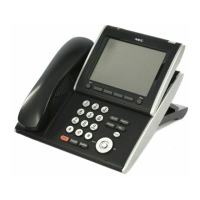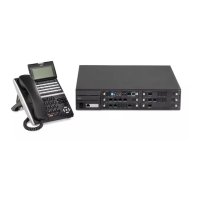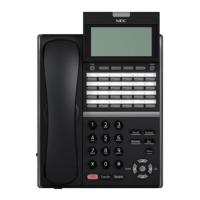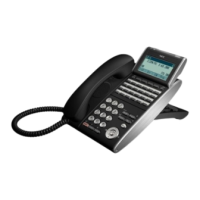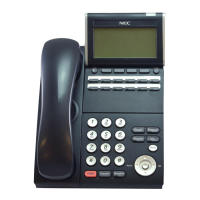384
Basic Trunk Data Setup – Receive Level
Customize the transmit and receive levels of
the CODEC Gain Types for each trunk.
Trunks 1 ~ 400
1 ~ 57
(-15.5 ~ +12.5dB in 0.5dB
intervals)
Basic Trunk Data Setup – Trunk-to-Trunk
Transfer
If DISA caller can place outgoing calls through
the system. Enable loop supervision for the
DISA trunk. If
DISA caller cannot use the
system trunks for
outgoing calls, enter
Disable.
0 = Disable (No)
1 = Enable (Yes)
System Options – DTMF Receive Active
Time
After answering the call, the system attaches a
DTMF receiver to the DISA trunk for this time.
Class of Service for Extensions
Assign a Class of Service (1 ~ 15) to an
extension.
Day Night/Mode: 1 ~ 8
Class of Service of Extensions
(1 ~ 15)
Extension port
101 = Class 15
All other
extension port =
Class 1
Class of Service Options (Incoming Call
Service) – Second Call for DID/DISA/DIL/
E&M Override
Turn Off or On an extension ability to receive a
second call from a DID, DISA, DIL, or tie line
caller.
With this option set to 1, the destination
extension must be busy for a second DNIS caller to
ring through. If the destination extension does not
have a trunk or CAP key available for the second
call and a previous call is ringing the extension but
has not yet been answered, the second caller hears
busy regardless of this program setting.
Class of Service Options (Supplementary
Service) – Display the Reason for Transfer
Select whether or not an extension should
display the reason a call is being transferred to
their extension (Call Forward Busy, Call
Forward No Answer, DND).
Class of Service Options for DISA/E&M –
First Digit Absorption (Delete First Digit
Dialed)
For tie lines, enable/disable the ability to ignore
the first incoming digit. Use this to make the tie
trunk compatible with 3- and 4-digit tie line
service. This option does not apply to DISA.
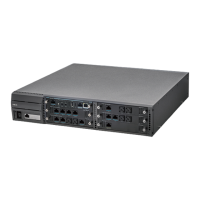
